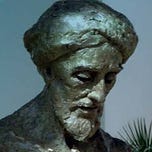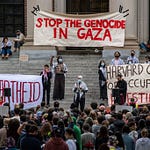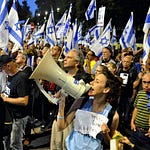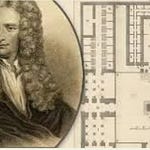[Image: Solomon Ibn Gabirol, the ultimate stranger, lived and cried in my city.]
Guerre (French): WAR Shalom (Hebrew): Hello, Goodbye, PEACE Guerre and Shalom War and Peace Guerre (Hebrew): Convert Foreigner STRANGER
“Ha’ger (The Stranger)” by Daniel Clarke-Serret
Life in Spain is good, but I am a stranger. Of course I am. To be a stranger in a strange land is to be expected. But worse than being a stranger in a strange land is to be a stranger in your own land. Be that a stranger in your “own land” of citizenship or a stranger in your “own land” of peoplehood. To be a stranger in a strange land feels natural; how it’s meant to be. An immigrant feeling like an immigrant. But to be a stranger in your own land is sadness after sadness magnified. It is having no say in the land which is your birthright. Why is it that I connect so deeply to the Jewish story, if I live not in its land or within its communities; when I am estranged from its rituals and am distant from its festivals; and its leadership uninspires me? Why is it that the Hebrew Bible speaks to my heart; And reaches out its hand to touch mine through the sands of time? Why do the struggles of the prophets with their stiff-necked people and heartless rulers and unlistening “friends” resonate so as if they happened but yesterday? Why does Solomon Ibn Gabirol, with his majestic voice so ignored by “his” community in these self same streets of Zaragoza, shoot an arrow through my time-divided soul? It is because I am a stranger. Those who were inflicted by the Egyptian whip in Mitzrayim knew what that meant. And so do I. Others - a majority in their country or in their enclosed community - may feel pride religion peoplehood culture and more. But strangerhood? That requires living as a stranger. That requires seeing through unrepresented eyes. And to know what it means to live as a stranger is to understand the Jewish story, the Jewish mission; which is that no person, wherever they may dwell, should feel “the other”, “the excluded”. So when people speak of a Jewish state, one cannot but sense a great oxymoronic tinge between those words. For whilst the Jewish people has a right to self-determination a flag and an anthem. Whilst it must feel wonderful to live one’s own festivals calendar and geography. To be a Jew, for a country to have a “Jewish character”, it must understand the anguish of an Egyptian slave’s cry; and the pain of a Moses who returned “home” to Egypt to the screaming criticism of his “own people”. And the Somalian and Eritrean, rejected from home, must - on the streets of a Jewish Tel Aviv - smile the smile of contentment that only a fig tree provides. To those who sit alone, I sit with you. And together we are home.
Or if you prefer a one off donation, buy me a cup of English breakfast tea on Ko-Fi:
















Share this post